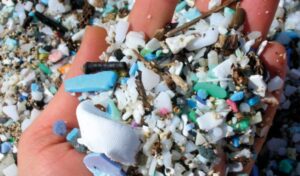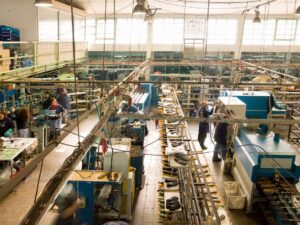- Take Action
- Policy
- Circular Economy
- National
- Policy
- Alberta
Province launching consultations to address consumer waste reduction and job creation
Related Resources
-

Government of Canada consultation papers to advance the plastics circular economy
-

- Policy
- Single-use Plastic
- National
- International
Single-use Plastics Prohibition Regulations - Technical guidelines
-

- Policy
- Single-use Plastic
- International
- National
Single-use Plastics Prohibition Regulations – Guidance for selecting alternatives
Lethridge News Now
EDMONTON, AB – The Government of Alberta is taking action to better manage waste reduction.
The province is going to be launching formal consultations to design a made-in-Alberta solution to plastic, packaging, and hazardous household waste.
An extended producer responsibility (EPR) program aims to help reduce waste volume in landfills and diversify the economy.
The province noted that under this approach, the cost and management of recycling shifts from municipalities and municipal taxpayers to those directly producing and consuming goods.
The hope is to encourage companies to produce less waste and packaging and come up with new ways to recycle more materials.
“Furthering our recycling goals as a province is a win-win for the environment, local economies and municipalities, some of whom are sitting on backlogs of potentially recyclable materials,” said Alberta’s Minister of Environment and Parks, Jason Nixon.
“Changes to how we manage recycling in Alberta have been a long time coming and I am proud that our government is working to make the province a global leader in addressing plastic waste.”
The province will undertake consultation with municipalities, industry experts, Indigenous communities through stakeholder meetings and with the public via an online survey. The online survey for Albertans is open until April 30.
“The Rural Municipalities of Alberta (RMA) is pleased to hear that the Government of Alberta is taking action on plastic waste. The RMA recognizes the value of recycling management and is a strong advocate that municipalities play an important role in waste reduction and waste management,” said Paul McLauchlin, president of the RMA.
“We are looking forward to engaging with Alberta Environment and Parks and other stakeholders to design a made-in-Alberta solution to plastic waste that works for all.”
Another focus is to create more jobs for Albertans. Currently, the province’s recycling activities support a total of 7,500 jobs while the sector contributes around $132 million a year to provincial gross domestic product.
A shift to extended producer responsibility will boost the provincial GDP share to more than $148 million.
The province said the change will also cut emissions by an estimated 72,000 tonnes of carbon dioxide equivalent annually, or the equivalent of taking 120,300 passenger cars off the road each year.
“Investors that are looking to Alberta’s economy will see this program as a strong sign of the government’s commitment to strong environmental, social and governance policies, and ARMA’s vision of a future without waste. Extended producer responsibility initiatives like this one use sensible, sustainable plastics diversion and recycling strategies for economic growth,” said Ed Gugenheimer, CEO of the Alberta Recycling Management Authority (ARMA).
“This creates conditions for economic development while meeting the demands and expectations of consumers, investors and taxpayers. Albertans should be proud of this initiative. Together, we are building a circular economy where domestic ingenuity is creating jobs, value, and making our world a cleaner, greener place.”
The Government of Alberta said many provinces in Canada have already shifted to an approach similar to extended producer responsibility method. EPR does not always mean extra costs for consumers.
The province noted that industry funds the programs and decides whether or not to charge consumers. In other jurisdictions, there have been no additional consumer fees for packaging materials and Alberta consumers may already benefit from extended producer responsibility programs because product pricing is done nationally.
